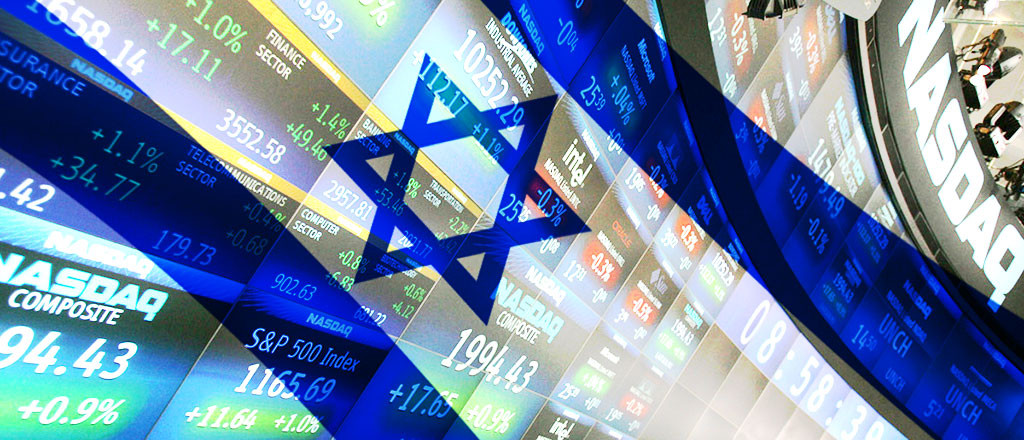Banks and startups, the two worlds could hardly be further apart.
Banks: colossal institutions, conservative in nature, often centuries of history.
Startups: minimal staff, innovative and fledgling businesses.
So why are some of the world’s major financial institutions heading to Tel Aviv to set up start-up accelerators?
The answer: Fintech (financial technology).
In the most recent development of the Startup Nation, the Israeli fintech space has earned the attention of banking institutions both in Israel and abroad. While there have been some notable success stories (Fundtech, Nice Systems and now, Check), Israel isn’t entirely famous for its fintech startups.
However this is beginning to change.
So what is fintech all about?

While the fintech market currently stands at $470 billion annually it is expected to grow at 5.4% annually. According to a recent report global investment in fintech has increased 3 fold in the last 5 years from $930 million in 2008 to $2.97 billion in 2013. In the coming years it is expected to take a bigger chunk of the overall VC investment.
When startups and financial centers collide
Pre-2008 major banks were reluctant to embrace the services of smaller technology vendors. This would stunt the banks’ ability to innovate as well as preventing the technology from gaining any foothold in the banking industry. But the financial crisis changed all that.

The main international financial centers, New York and London, have established fintech accelerators with some of the major players of the banking world including JP Morgan, Citigroup, Morgan Stanley. The availability of industry expertise in these centers provides ample support and mentorship for entrepreneurs in this space.
Convergence from the opposite angle
Where Tel Aviv is markedly different is that it is entering the space from the opposite angle. While it has become almost legendary for its innovation and entrepreneurship, it is less known for its financial institutions. Not anymore.
According to a recent report, the Israeli metropolis, has moved up 11 places from last year and is now rated 21st on the list of global financial centers. Banks are coming to Israel to embrace innovation whereas elsewhere entrepreneurs are trying to get noticed by banks.

Israeli startups gaining traction
While Tel Aviv is poised to benefit from this interest, there are some notable Israeli startups that are gaining traction in local and international markets:
- BillGuard – a personal finance app that identifies deceptive, erroneous and unauthorized charges on consumer credit card and debit card bills.
- eToro – a social investment network that allows its users to follow the financial trading activity of other investors and copy them.
- Payoneer – a provider of global payout solutions, offering a secure, simple & cost-effective way for companies to pay people and businesses worldwide.
- ZooZ – enables app developers to start accepting in-app payments with multiple payment options.
- Pango – offers advanced cellular parking and fueling payment solutions.
The Israeli fintech industry saw a lot of high-profile attention this year, the most prominent example being the recent acquisition of bill-payment service provider Check by Intuit for $360 million. Check’s smartphone app is used by more than 10 million people to track and pay their bills. Following the completion of the sale, Check will become Intuit’s research and development center in Israel. As 2014 progresses, we can expect to see and hear a lot more about VC’s and angel investors investing in and promoting the fintech market in Israel.
If you would like to keep track of the FinTech space, other sectors or the opportunity to invest in the Start Up Nation visit mktg.ocdvlp.com.
[xyz-ihs snippet=”DaveLawrence”]


![All your questions, answered: 8 things to know about the medical cannabis industry [AMA with Dr. Morris Laster]](https://blog.mktg.ocdvlp.com/wp-content/uploads/2015/05/AMA-blog-post.png)





